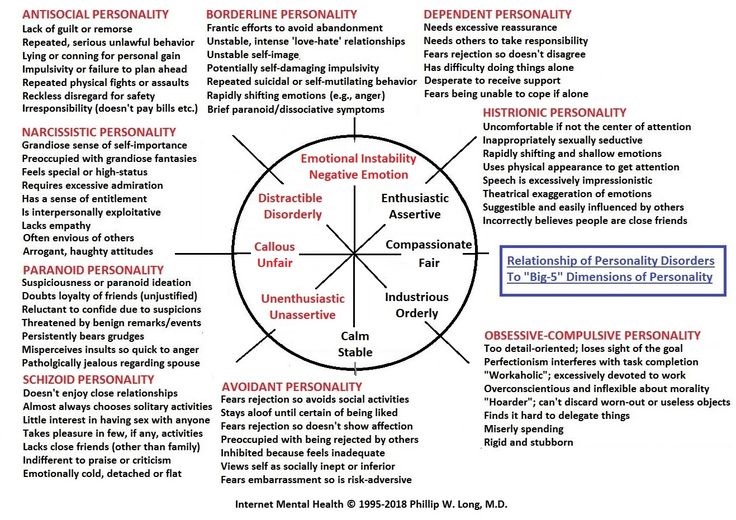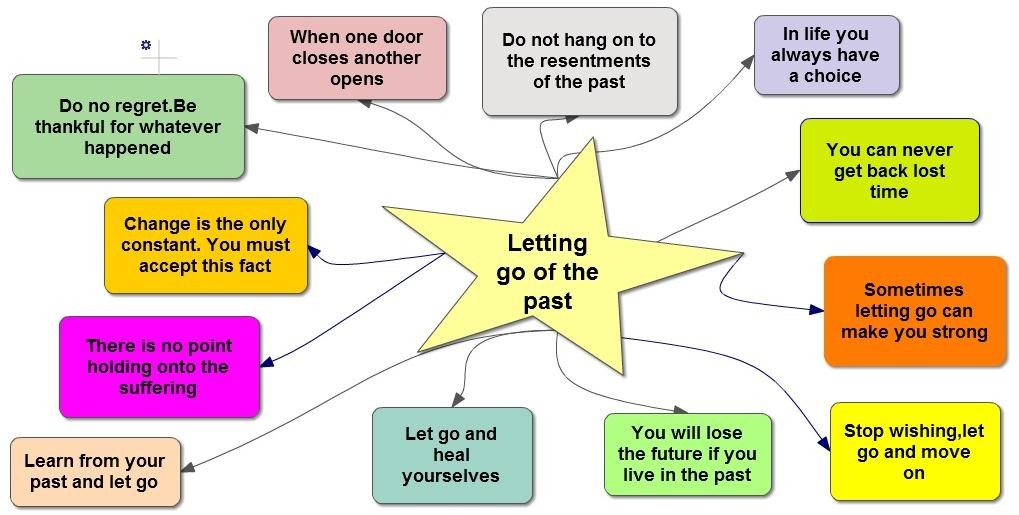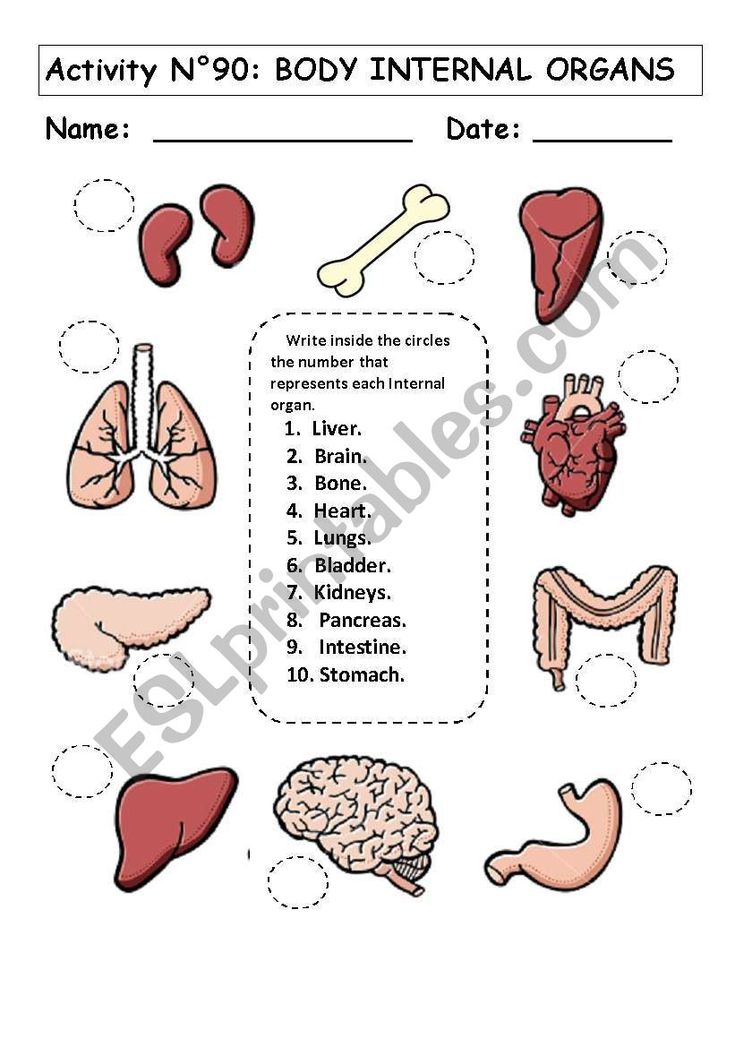Explosive personality disorder test
Intermittent Explosive Disorder: Symptom Test for Adults
Do I Have Intermittent Explosive Disorder?
Intermittent Explosive Disorder (IED) is characterized by repeated and sudden episodes of aggressive or violent behavior that can be verbal or physical in nature and are disproportionate to the triggering situation. IED typically appears for the first time during the teen years, but symptoms can continue into adulthood; it is most common in people under the age of 40, according to the Cleveland Clinic.
Answer the following questions to determine whether you show possible signs of Intermittent Explosive Disorder, and then share the results with a medical professional for further evaluation.
This questionnaire is designed to determine whether you demonstrate symptoms similar to those of intermittent explosive disorder (IED). If you answer 'Very Frequently' or 'Often' to a significant number of these questions, consult a licensed mental health practitioner.
An accurate diagnosis can only be made through clinical evaluation.
Do you have an overall feeling of irritability and find it difficult to relate to other people because you are easily annoyed at their behaviors or opinions?
Very Often
Often
Sometimes
Rarely
Never
Do you anger quickly and for relatively inconsequential reasons? For example, would you become enraged if dinner were not cooked the way you liked it, if one of your children spilled something, or if a task were not completed to your liking?
Very Often
Often
Sometimes
Rarely
Never
Have you considered suicide or acted in ways that were harmful to yourself?
Very Often
Often
Sometimes
Rarely
Never
Have you lost several jobs, mostly for your irritable attitude? Do you become argumentative with coworkers and have a difficult time taking direction from superiors? Have you yelled and cursed at your boss or coworkers?
Very Often
Often
Sometimes
Rarely
Never
Are your anger episodes extremely intense, but over in about 30 minutes? Once your anger has subsided, do you feel tired and embarrassed about your behavior?
Very Often
Often
Sometimes
Rarely
Never
During a violent episode, might you scream, kick, push, shove or punch others? Do you show your anger by destroying property, throwing and breaking items, punching holes in walls, or kicking in doors?
Very Often
Often
Sometimes
Rarely
Never
Are your partner, children, and other family members afraid of you? Do they go to great lengths to not make you angry, knowing that even the smallest annoyance or frustration can bring on an episode?
Very Often
Often
Sometimes
Rarely
Never
Do certain situations, such as being told what to do or being publicly corrected for your language or behavior, make you particularly angry? Are you similarly triggered when you perceive that someone has treated you unfairly or that you did not get what you wanted?
Very Often
Often
Sometimes
Rarely
Never
Do you have a history of other mental health conditions, such as antisocial personality disorder, borderline personality disorder, mood disorder, anxiety, or substance abuse?
Very Often
Often
Sometimes
Rarely
Never
Have you been accused of cruelty to animals? Have you kicked or hit your pets for minor infractions, such as urinating on the carpet or jumping on the furniture?
Very Often
Often
Sometimes
Rarely
Never
When an episode has ended, do you feel great remorse and regret? Do you promise to never behave in that way again? But then, when the anger builds again, do you feel you are unable to control it?
Very Often
Often
Sometimes
Rarely
Never
When an episode begins, do you lose the ability to think about the consequences of your actions? Does it feel as if you have no control over your thoughts and react without thinking?
Very Often
Often
Sometimes
Rarely
Never
Were you physically or emotionally abused as a child or did you witness a family member abuse people and animals, either verbally or physically?
Very Often
Often
Sometimes
Rarely
Never
Have you paid fines or been arrested for crimes involving anger, such as domestic violence, physical altercations, verbal threats, or road rage?
Very Often
Often
Sometimes
Rarely
Never
Do you use alcohol or other substances to help relieve the feelings of frustration or anger, but feel they don’t help — and may actually increase your feelings of anger and increase your violent or aggressive behavior?
Very Often
Often
Sometimes
Rarely
Never
(Optional) Would you like to receive your intermittent explosive disorder symptom test results — plus more helpful resources — via email from ADDitude?
Subscribe me to your newsletter!
Can’t see the self-test questions above? Click here to open this test in a new window.
Intermittent Explosive Disorder in Adults: Next Steps
1. Read Why You Lash Out — Sometimes for No Good Reason
2. Take This Test: Do You Have Emotional Hyperarousal?
3. Take This Test: Do You Have Rejection Sensitive Dysphoria?
4. Take this Test: Full ADHD Symptom Test for Adults
5. Download Get a Grip on Tough Emotions
6. Take This Test: Oppositional Defiant Disorder in Adults
7. Find a specialist nearby who could help in our ADDitude Directory
Previous Article Next Article
Intermittent Explosive Disorder Symptom Test for Adults – ADDitude
Intermittent Explosive Disorder (IED) is characterized by repeated and sudden episodes of aggressive or violent behavior that can be verbal or physical in nature and are disproportionate to the triggering situation. IED typically appears for the first time during the teen years, but symptoms can continue into adulthood; it is most common in people under the age of 40, according to the Cleveland Clinic.
Answer the following questions to determine whether you show possible signs of Intermittent Explosive Disorder, and then share the results with a medical professional for further evaluation.
This questionnaire is designed to determine whether you demonstrate symptoms similar to those of intermittent explosive disorder (IED). If you answer 'Very Frequently' or 'Often' to a significant number of these questions, consult a licensed mental health practitioner. An accurate diagnosis can only be made through clinical evaluation.
Do you use alcohol or other substances to help relieve the feelings of frustration or anger, but feel they don’t help — and may actually increase your feelings of anger and increase your violent or aggressive behavior?
Very Often
Often
Sometimes
Rarely
Never
Have you been accused of cruelty to animals? Have you kicked or hit your pets for minor infractions, such as urinating on the carpet or jumping on the furniture?
Very Often
Often
Sometimes
Rarely
Never
Have you paid fines or been arrested for crimes involving anger, such as domestic violence, physical altercations, verbal threats, or road rage?
Very Often
Often
Sometimes
Rarely
Never
Are your anger episodes extremely intense, but over in about 30 minutes? Once your anger has subsided, do you feel tired and embarrassed about your behavior?
Very Often
Often
Sometimes
Rarely
Never
Were you physically or emotionally abused as a child or did you witness a family member abuse people and animals, either verbally or physically?
Very Often
Often
Sometimes
Rarely
Never
Have you considered suicide or acted in ways that were harmful to yourself?
Very Often
Often
Sometimes
Rarely
Never
Do you anger quickly and for relatively inconsequential reasons? For example, would you become enraged if dinner were not cooked the way you liked it, if one of your children spilled something, or if a task were not completed to your liking?
Very Often
Often
Sometimes
Rarely
Never
Do certain situations, such as being told what to do or being publicly corrected for your language or behavior, make you particularly angry? Are you similarly triggered when you perceive that someone has treated you unfairly or that you did not get what you wanted?
Very Often
Often
Sometimes
Rarely
Never
When an episode begins, do you lose the ability to think about the consequences of your actions? Does it feel as if you have no control over your thoughts and react without thinking?
Very Often
Often
Sometimes
Rarely
Never
Are your partner, children, and other family members afraid of you? Do they go to great lengths to not make you angry, knowing that even the smallest annoyance or frustration can bring on an episode?
Very Often
Often
Sometimes
Rarely
Never
Do you have a history of other mental health conditions, such as antisocial personality disorder, borderline personality disorder, mood disorder, anxiety, or substance abuse?
Very Often
Often
Sometimes
Rarely
Never
Have you lost several jobs, mostly for your irritable attitude? Do you become argumentative with coworkers and have a difficult time taking direction from superiors? Have you yelled and cursed at your boss or coworkers?
Very Often
Often
Sometimes
Rarely
Never
Do you have an overall feeling of irritability and find it difficult to relate to other people because you are easily annoyed at their behaviors or opinions?
Very Often
Often
Sometimes
Rarely
Never
When an episode has ended, do you feel great remorse and regret? Do you promise to never behave in that way again? But then, when the anger builds again, do you feel you are unable to control it?
Very Often
Often
Sometimes
Rarely
Never
During a violent episode, might you scream, kick, push, shove or punch others? Do you show your anger by destroying property, throwing and breaking items, punching holes in walls, or kicking in doors?
Very Often
Often
Sometimes
Rarely
Never
(Optional) Would you like to receive your intermittent explosive disorder symptom test results — plus more helpful resources — via email from ADDitude?
Subscribe me to your newsletter!
Variance tests | Diagnosis of mental disorders
Category
- All tests
- Personality and character nine0005 Temperament
- Interpersonal relationships
- Diagnosis of deviations nine0006
- depression and stress
-
back
Educational nine0004 - History
- Biology nine0005 Physics
- Chemistry nine0005 Russian language
- Maths nine0005 Geography
- life safety fundamentals nine0005 Literature
- English nine0005 Social science
- The medicine nine0005 Other nine0047
- intellectual
- Career and business nine0005 Entertainment
- For men
- For girls nine0006
- Love and family
- For kids nine0005 Health
Popular
-
New
-
Old
nine0006 -
Popular
-
A-Z
-
Z-A
Pro
Schizophrenia Tendency Test nine0002 Definition of Bipolar DisorderRorschach ink stains: is everything okay with your psyche? nine0003
Do you have a split personality?
Accentuations of character according to the theory of A. E. Lichko. Define your features! nine0003
E. Lichko. Define your features! nine0003
Are you a sociophobe?
Do you have phobias? nine0003
Questionnaire of Leonhard Shmishek on character accentuation
Clinical questionnaire of neurotic conditions nine0003
Do you have psychosexual disorders?
Load more
Abnormal tests are not intended to diagnose or label "Psychic".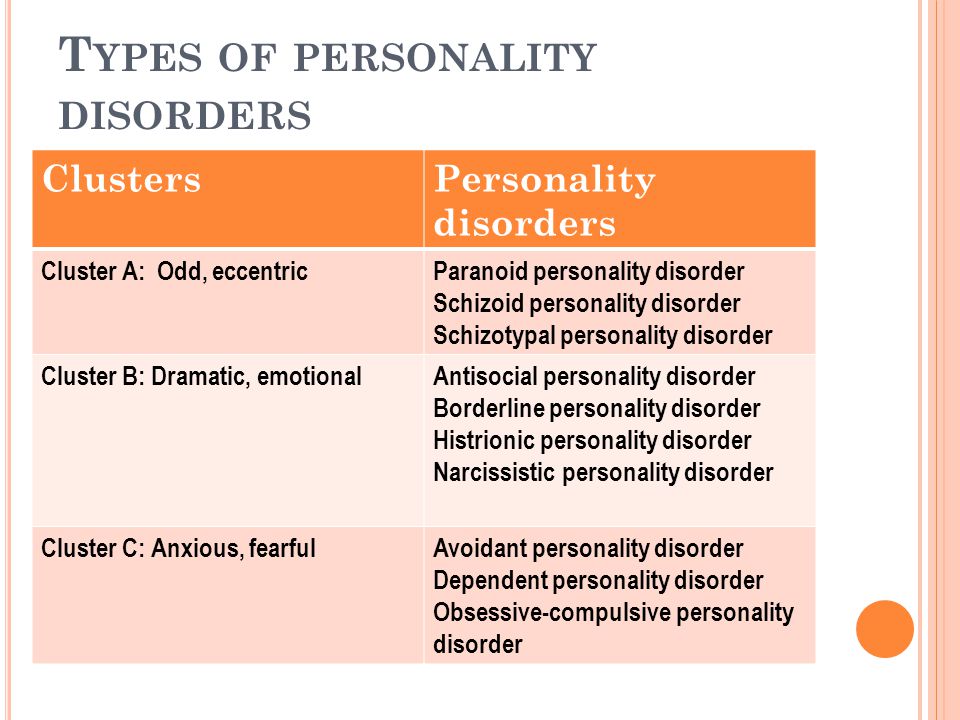 They are able, with some degree of probability, to determine deviations from the norm and predisposition to various kinds of mental disorders. In this section you will find many professional tests for diagnosing mental disorders. But remember, only a specialist can make an exhaustive interpretation and an accurate diagnosis! nine0003
They are able, with some degree of probability, to determine deviations from the norm and predisposition to various kinds of mental disorders. In this section you will find many professional tests for diagnosing mental disorders. But remember, only a specialist can make an exhaustive interpretation and an accurate diagnosis! nine0003
Obsessive-compulsive disorder (OCD) - causes, symptoms, signs, examples, diagnosis (test), treatment
Signs of obsessive-compulsive disorder (OCD) do not depend on the will of the person, since they are related to mental illness. There are two main signs:
- obsessions - obsessive thoughts, ideas, images;
- compulsions are repetitive actions or rituals. nine0006
The second name of the disease is obsessive-compulsive disorder. The content of thoughts and images is perceived by the patient as alien, their pain is recognized, but it is not possible to get rid of them on their own.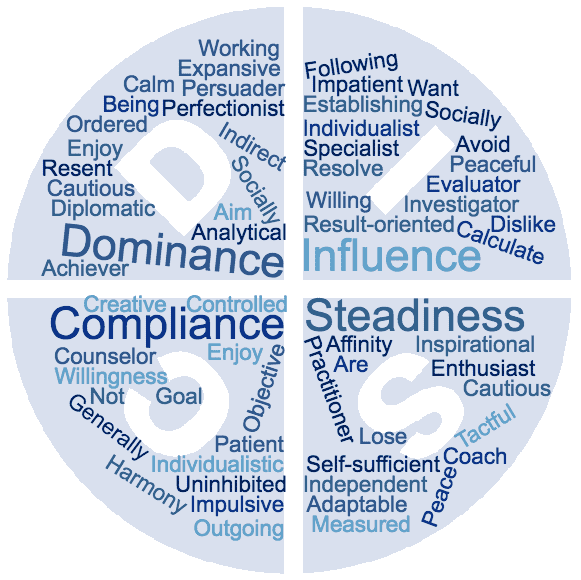
Features of obsessive-compulsive disorder
Obsessive-compulsive personality disorder was described in the first half of the 19th century by the French psychiatrist Esquirol, and was called the "disease of doubt." Subsequently, scientists identified the main difference between the disease - the patient's perception of the alienation of the experienced. All other mental illnesses absorb the personality, changing it beyond recognition. A mentally ill person becomes completely different than before the illness. In OCD, the core of the personality remains intact, but the accompanying rituals and experiences are overwhelming, making life difficult. However, there have been cases where a major psychiatric illness (schizophrenia, bipolar disorder) began as OCD. nine0003
The morbid state must be distinguished from the natural fear necessary for survival. The fear of depth, the desire to move away from a moving train or a landslide, the desire to hide in an explosion are just reasonable behavior, albeit tinged with intense fear.
Obsessive-compulsive disorder in women and men occurs with the same frequency of 2 to 5%. Some authors argue that women are more likely to get sick. Statistics are kept only in developed countries where medical care is available. It is not known if the disease occurs elsewhere. nine0127
Causes of obsessive-compulsive disorder
There is no final coherent theory regarding the reasons yet. The following variants are discussed:
- hereditary predisposition – violations of the synthesis of neurotransmitters (chemical substances involved in the transmission of a nerve impulse) are always of a genetic nature;
- increased activity of some parts of the brain, namely in the limbic system - the dentate gyrus, the prefrontal part of the cerebral cortex; nine0006
- decrease in the concentration of substances responsible for emotions (serotonin, dopamine) in the thalamus, cortical circuit;
- deviations in the work of brain receptors;
- anomalies in the development of certain zones, in particular the cerebellum and the inferior frontal gyrus;
- congenital or acquired disorders of nerve impulse transmission.
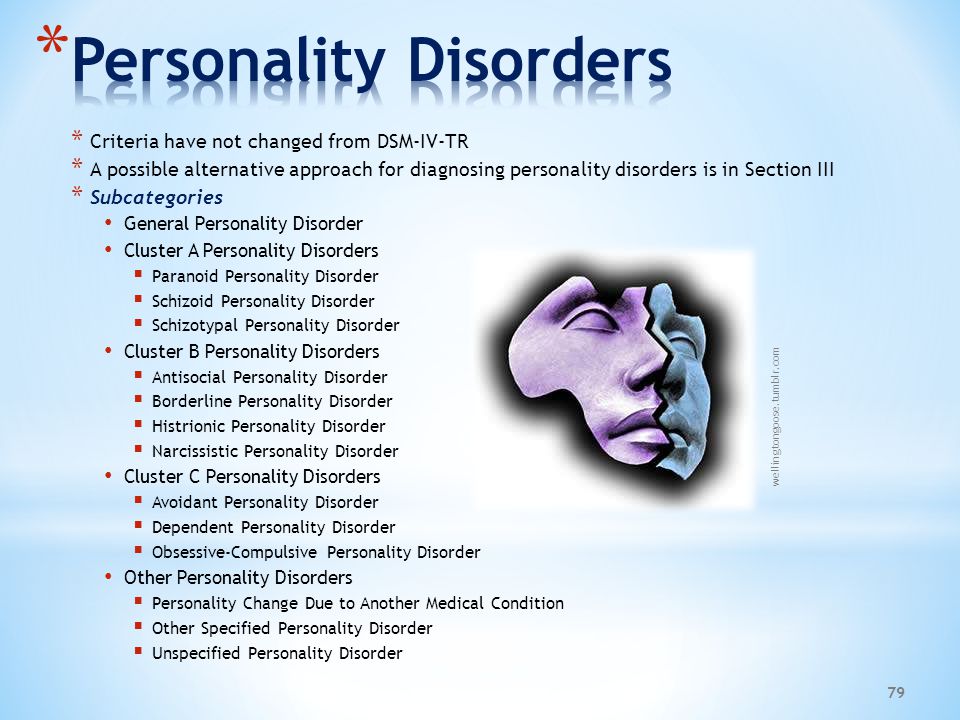
Changes in the work of the cortex and limbic system occur both for genetic reasons and under the influence of adverse external factors. nine0003
Provoking factors are:
- immune system malfunctions;
- stress, especially chronic;
- physiological fluctuations in hormonal status in women during pregnancy, childbirth and lactation, as well as during the menstrual cycle;
- encephalopathies of various origins, especially vascular ones;
- trauma and surgery on the brain;
- personal life problems, especially loneliness; nine0006
- alcoholism and drug use;
- infectious diseases - hepatitis, herpetic lesions, HIV;
- severe somatic pathology - a chronic increase in thyroid function, inflammation of the kidneys, pancreas, liver, stomach.
Obsessive-compulsive disorder in children develops between the ages of 3 and 12 years, it practically does not occur in babies.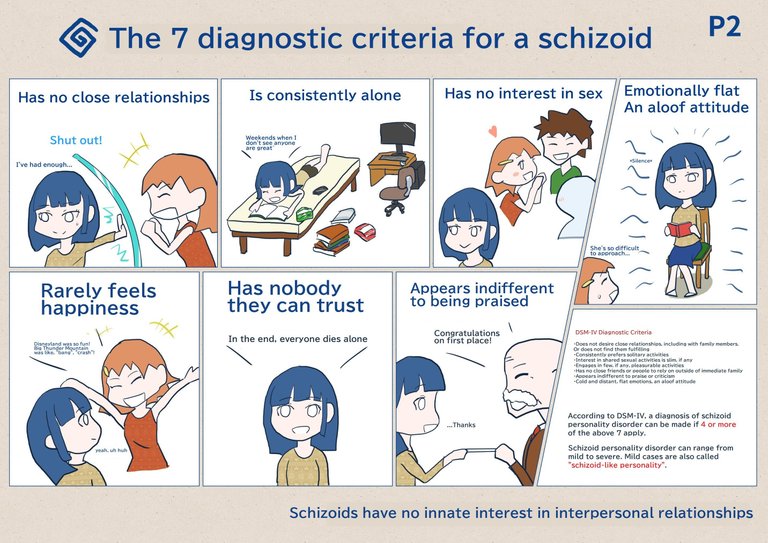 The closer to adolescence, the higher the incidence. The biological prerequisites are:
The closer to adolescence, the higher the incidence. The biological prerequisites are:
- brain damage occurring in the prenatal period and in early childhood;
- violations of the transmission of a nerve impulse, including changes in the number of neurotransmitters;
- mutation in the gene responsible for the production of serotonin;
- streptococcal infection in the first year of life.
Psychologists have a slightly different view of the nature of the disorder. The main hypothesis is considered to be psychoanalytic, namely the conflict of internal sexual aggression and parental prohibition on such relationships. It is also noted that OCD is more often formed in people with anancastic (stuck) personality traits. One of the undoubted reasons is a difficult, destructive family environment with constant scandals. The death of a mother in early childhood and the loss of a father after the age of 3 years have an extremely unfavorable effect on health. Too strict upbringing, lack of affection and understanding, excessive parental requirements have a negative impact on children. nine0003
Too strict upbringing, lack of affection and understanding, excessive parental requirements have a negative impact on children. nine0003
Russian physiologist Pavlov believed that the disease develops in people of the thinking type with sluggish (inert) processes of excitation-inhibition.
Symptoms of obsessive-compulsive disorder
Obsessive fears or phobias have many varieties, each of which has its own name:
- cancerophobia - fear of getting cancer;
- claustrophobia - closed space;
- agoraphobia - open areas; nine0006
- thanatophobia - death;
- arachnophobia - spiders;
- nosophobia - infection.
Fear has an irrational nature, no beliefs, arguments and evidence have any effect on the patient. To protect against imaginary danger, the patient creates his own rituals or repetitive actions that he performs in strict sequence.
A classic example of obsessive-compulsive disorder: a patient with nosophobia cannot touch anything before washing his hands with hot water and soap three times. In some patients, the fear of infection is so strong that it forces them to wash the floors several times a day with an undiluted disinfectant solution. The fact that there is nothing to breathe in the room and the skin on the hands cracks to blood does not matter to the patient. In such a neglected case, we are no longer talking about any social adaptation, the patient simply cannot leave the house to get to work or walk to the store. nine0127
Diagnosis of obsessive-compulsive disorder
Establishing a diagnosis is the task of a psychiatrist, to whom, unfortunately, the patient does not always get right away. Often, a patient, who is certainly convinced that he has a somatic disease, undergoes a series of various examinations and treatments that do not bring results.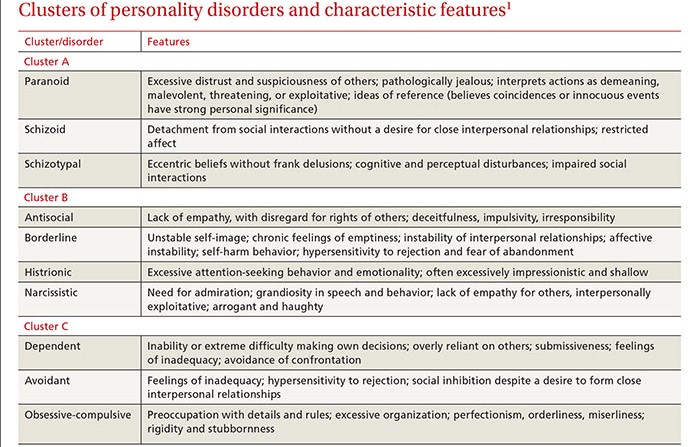 Internists (doctors in internal medicine) refer to a psychiatrist after the failure of their own attempts.
Internists (doctors in internal medicine) refer to a psychiatrist after the failure of their own attempts.
It is essential that the obsessive thoughts or actions take up at least one hour a day to establish the diagnosis. There is a "gold standard" psychological examination for obsessive-compulsive disorder - the Yale Brown test. This is a 10 section questionnaire. Each section has 5 answer options, you need to choose one, the answer is estimated in points. The scores are added up and scored on a scale from 0 to 40, with the highest score indicating extreme OCD. The questionnaire is freely available, you can complete it yourself. nine0003
The result of a neurological examination gives non-specific data characteristic of many nervous disorders: trembling of closed eyelids and outstretched arms, increased tendon reflexes, signs of autonomic imbalance. If the organic nature of the disease is suspected, neuroimaging methods (CT, MRI, and the like) are used.
Treatment of obsessive-compulsive disorder
Therapy is selected strictly individually, it takes time. Usually combine several methods: both drug and non-drug. nine0003
Usually combine several methods: both drug and non-drug. nine0003
For obsessive-compulsive disorder, psychotropic drugs from the following groups are used:
- third-generation antidepressants;
- tranquilizers;
- atypical neuroleptics.
Psychotropic drugs do not act immediately, it is possible to increase the dose with an interval of 7-14 days. The selection and combination of drugs is a delicate matter, there can be no general recommendations. However, the earlier a person sees a doctor, the less time is required to select a treatment. nine0003
Of the psychotherapeutic methods, the following types of therapy have proven themselves well:
- cognitive-behavioral;
- exposure method - collision and working out of a disturbing situation;
- stopping thought - learning to stop the influx of specific obsessions;
- hypnosis;
- auto-training;
- games and fairy tale therapy in children.

Prevention of obsessive-compulsive disorder has not been developed. Recovery is rare, but stubborn treatment can significantly reduce painful manifestations and improve social adaptation. Smoothing of symptoms occurs after 40 years. In severe cases, the third group of disability is established. nine0003
Author of the article:
Novikov Vladimir Sergeevich
psychotherapist, clinical psychologist, kmn, member of the Professional Psychotherapeutic League
reviews leave feedback
Clinic
m. Frunzenskaya
Reviews
Services
- Title
- Initial appointment, consultation with a psychotherapist (up to 1 hour) 4000 905 years. Red Gates. AvtozavodskayaPharmacy. Glades. Sukharevskaya. st. Academician Yangelam. Frunzenskaya Zelenograd
Basko Marina Vladislavovna
psychotherapist
reviews Make an appointment
Clinic
m.
